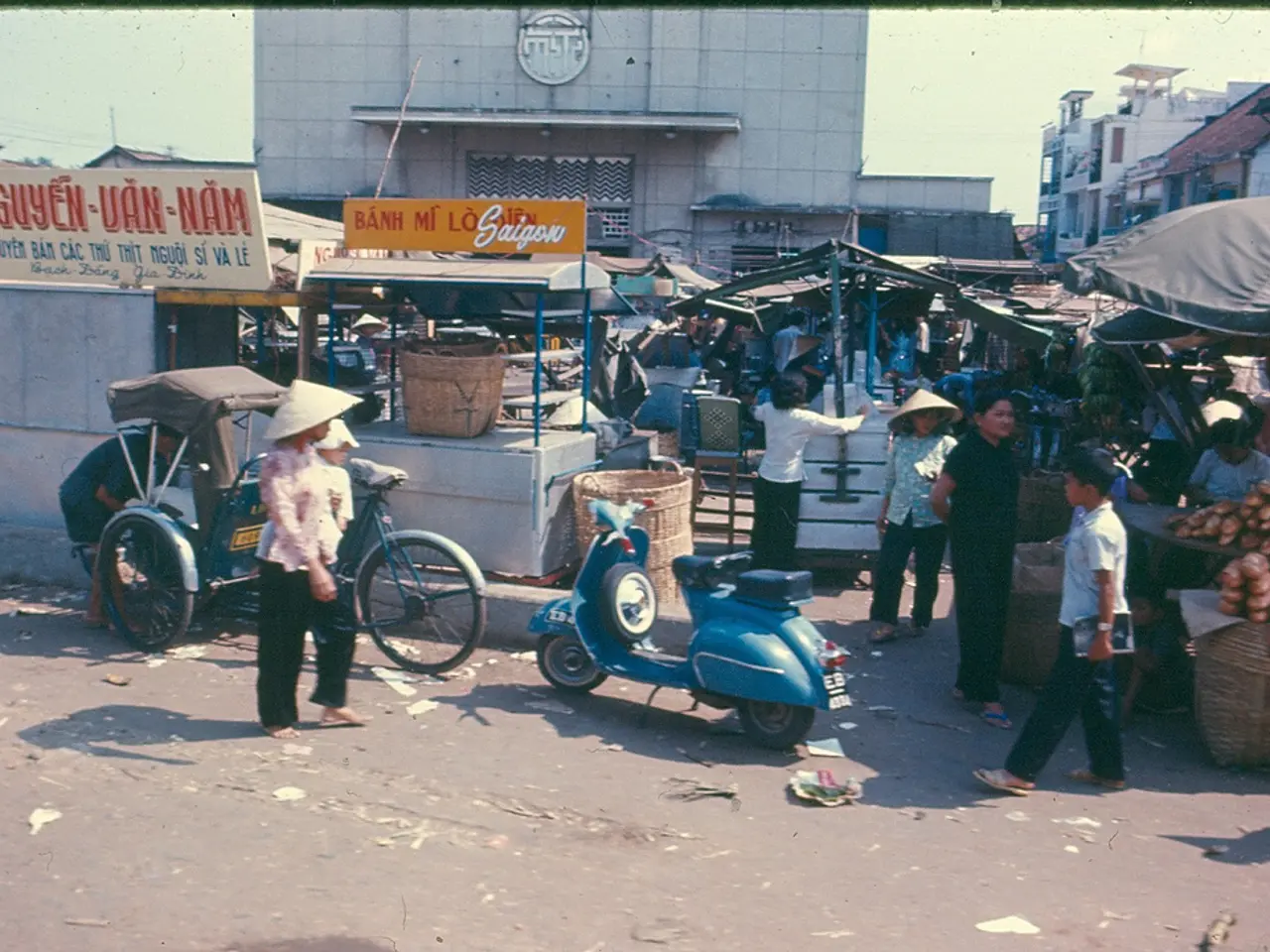Circular Economy Solutions in Tanzania: A Spotlight on the Success of Mr. Rizik Ali's Plastic Recycling Enterprise in Pemba
Unveiling the Mystery: Who is the Notable Dealer Representing Island Plastics - Mr. Riziki Ali?
In the coastal town of Pemba, Tanzania, Mr. Rizik Ali's plastic recycling business is making a significant impact on the environment and local community. This innovative enterprise, which began in 2015, is a shining example of how local initiatives can effectively tackle plastic pollution, create jobs, and promote sustainable development.
Background
Plastic waste has become a growing concern in Tanzania, with Pemba being no exception. Single-use plastics, in particular, are heavily littered across the island, impacting marine life, community health, and the overall environment.
The Enterprise
Mr. Rizik Ali's plastic recycling enterprise aims to reduce plastic waste while creating employment opportunities and promoting sustainable community development. The business collects discarded plastics from households, businesses, and beaches, sorts them, cleans them, and processes them into reusable raw materials.
Circular Economy Impact
- Waste Reduction: By diverting plastic waste from landfills and natural environments, the enterprise cuts down pollution and conserves natural resources.
- Resource Efficiency: The recycled plastic is transformed into valuable products such as plastic pellets, which local manufacturers can use to make new items, closing the materials loop.
- Job Creation: The initiative provides employment opportunities for local youth, empowering them economically and promoting skill development in recycling techniques. The business employs eight full-time youth workers and contracts twenty women sorters.
- Community Awareness: Mr. Rizik Ali’s work also involves educating residents on the importance of reducing, reusing, and recycling plastics, fostering responsible waste management behaviors.
Partnerships and Support
The IslandPlas Project, supported by The Coca Cola Foundation, is committed to building a circular economy in Zanzibar. The project aims to divert plastic away from ocean waste and contribute to the economic empowerment of women and youth in local communities. Mr. Rizik's facility was an innovation-demonstration site during this year's World Environment Day, showcasing how discarded plastic can be transformed into economic value.
Challenges and Overcoming Them
Initially, challenges such as limited recycling technology, lack of funding, and community resistance posed hurdles. However, through partnerships with local NGOs, government support, and community engagement, Mr. Rizik Ali was able to expand his operations and demonstrate the feasibility and benefits of circular economy practices.
The Future
With the right support, tools, infrastructure, and policy linkages, Mr. Rizik's initiative can be scaled further. The Ministry of Blue Economy and Fisheries in Pemba encourages Mr. Rizik to apply for upcoming government entrepreneurship funds. The IslandPlas Project continues to work with local actors like Mr. Rizik to ensure that plastic material always finds value beyond its initially intended use through innovative transformation.
Official Endorsements
Officials from the Zanzibar Environment Management Authority, the Ministry of Blue Economy and Fisheries, and other stakeholders collectively endorse Mr. Rizik's initiative as a high-potential local solution to plastic pollution. The IslandPlas project teamed up with Bahari Mali project to engage with locals and inspire change for plastic-free islands.
Financial Aspects
The maximum monthly salary among the youth employees is 81 USD, while women sorters are paid 12 USD per ton of plastic cleaned and sorted. Mr. Rizik continues to face challenges, including the absence of key machines such as a conveyor, washer, dryer, and compressor, and difficulties in maintaining the blades of his shredding machine due to unavailability of spare parts in Tanzania.
Learning and Collaboration
Mr. Rizik learned plastic recycling from Chinese and Indian recyclers and exports to them. The IslandPlas Project's mission aligns closely with Mr. Rizik's, aiming to enhance plastic material recovery, support improvements in local livelihoods, and spur circular innovation and community-driven solutions.
In conclusion, Mr. Rizik Ali's plastic recycling enterprise is a shining example of how local initiatives can effectively tackle environmental issues while generating economic opportunities. The enterprise's success underscores the potential of circular economy solutions in Tanzania and beyond.
This waste reduction venture, located in the coastal town of Pemba, Tanzania, not only lessens plastic pollution but also fosters sustainable community development as part of a circular economy. By processing discarded plastics and turning them into reusable raw materials, they promote resource efficiency in the health-and-wellness sphere and contribute to the environment's welfare. Additionally, the enterprise focuses on creating job opportunities in the fitness-and-exercise realm, providing employment for local youth and women. Furthermore, Mr. Rizik's supportive partnership with the IslandPlas Project, backed by The Coca Cola Foundation, aims to establish sustainable living practices by promoting environmental science, especially in terms of climate change and the environment.




